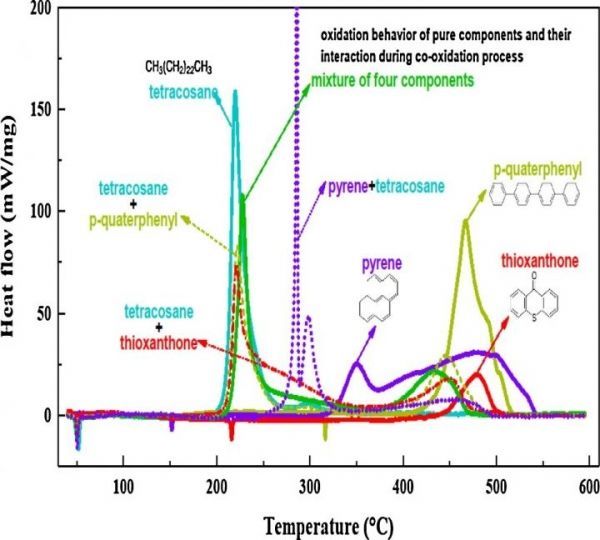The problem of petroleum depletion becomes more and pertinent every day. As deficits arise, non-traditional and heavy oils, including bitumen and shales, emerge as the focus of extensive research. Globally, they account for about 60 to 70 percent of explored reserves. For Russia, it’s also over 60 percent.
Head of Ecooil Research Unit at Kazan University Mikhail Varfolomeev comments on this particular paper, “We studied how components and composition of oil can influence the implementation of in-situ combustion. We used model components to mimic in-situ processes and compiled our recommendations for oil companies.”
For this purpose, the team separately researches saturated fractions, aromatic fractions, tars, and asphaltenes.
Senior Research Associate of Rheology and Thermochemical Research Lab Yuan Chengdong explains, “We managed to compare the characteristics of these four components and analyze the effects of their combined combustion. The study helps to better understand the behavior of crude oil during in-situ combustion. We can understand the mechanisms of hydrocarbon oxidation because alkanes, aromatics and their oxygen-containing and sulfur-containing derivatives can be found in common motor fuels, such as petrol, diesel, and airplane fuel.”
Read more at: Kazan Federal University
The problem of petroleum depletion becomes more and pertinent every day. As deficits arise, non-traditional and heavy oils, including bitumen and shales, emerge as the focus of extensive research. Globally, they account for about 60 to 70 percent of explored reserves. For Russia, it's also over 60 percent. (Photo Credit: Kazan Federal University)


